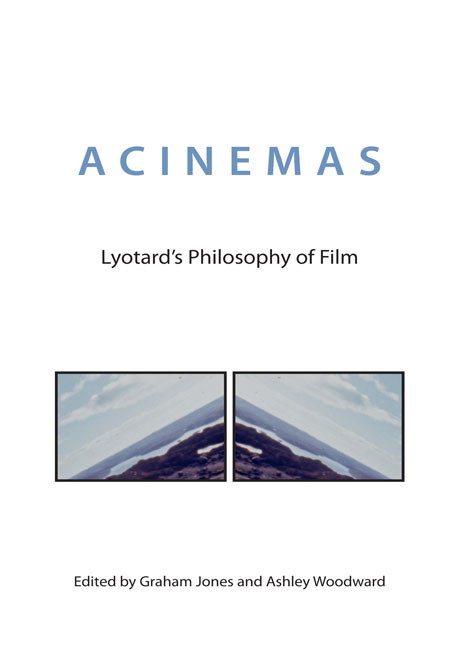Book contents
- Frontmatter
- Contents
- Acknowledgements
- Abbreviations
- Translators’ Note
- I Openings
- II Lyotard's Essays on Film
- 4 Acinema
- 5 The Unconscious as Mise-en-scène
- 6 Two Metamorphoses of the Seductive in Cinema
- 7 The Idea of a Sovereign Film
- III Approaches and Interpretations
- IV Applications and Extensions
- Appendices
- Notes on Contributors
- Index
6 - Two Metamorphoses of the Seductive in Cinema
from II - Lyotard's Essays on Film
Published online by Cambridge University Press: 23 June 2018
- Frontmatter
- Contents
- Acknowledgements
- Abbreviations
- Translators’ Note
- I Openings
- II Lyotard's Essays on Film
- 4 Acinema
- 5 The Unconscious as Mise-en-scène
- 6 Two Metamorphoses of the Seductive in Cinema
- 7 The Idea of a Sovereign Film
- III Approaches and Interpretations
- IV Applications and Extensions
- Appendices
- Notes on Contributors
- Index
Summary
1. The title is doubly deceptive. It seems assertive; it should be interrogative. The question is: whether anything escapes from seduction. It is proposed apropos of political cinema. The two cases are: the work of Syberberg, and the sequence of the attack on the Vietnamese village by the American dragoon helicopters in Coppola's Apocalypse Now. But I will say hardly anything about the work of Syberberg.
2. There is not a Gorgias fragment preserved which does not rest on the peithô (persuasion), the goètéia (sorcery) of language, on its deception (apatè), its power (dunastès). Tragedy is a deception, he says, and he adds: ‘the deceiver is more honest than the non-deceiver, and the deceived is wiser than the non-deceived’ (DK 82 B23; Freeman 1953: 201).1 Gorgias says further that ‘the power of speech over the constitution of the soul can be compared with the effect of drugs on the bodily state’ (DK 82 BII, 14; Freeman 1953: 198). He wonders about this power; he says that it consists in the metastasis of the opinions of the listener: their displacement, the displacement of their foundation. In a dialogue entitled Menexenes, Plato's Socrates describes the efficacy of the funeral oration that an orator is charged to deliver every year to the memory of the citizens who died for Athens. It appears that this efficacy consists in the metastasis of the names on the pragmatic places of the addressee (you), and of the referent (they), according to the following dispositif:
– these dead were virtuous
– they were virtuous because they were Athenians and died for Athens
– you are Athenians
– you are virtuous
We have in these analyses of Ancient rhetoric the rudiments of a pragmatics of seduction by language.
3. These indications suffice to situate the manner in which it appears to me interesting to speak of seduction. I don't mean as an intentional action exercised by a seducer on a victim: Gorgias’ observation on tragedy signifies that both play a single game and that it's seduction itself (deception, apatè) which determines the rule.
- Type
- Chapter
- Information
- AcinemasLyotard's Philosophy of Film, pp. 55 - 61Publisher: Edinburgh University PressPrint publication year: 2017



